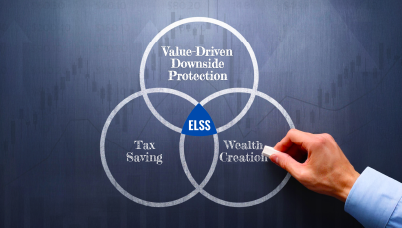Is Gold Cheap or Oil Expensive?
Posted On Friday, Aug 01, 2008
I am sure all of us have a savings bank account and our salaries or professional income is deposited there every month. And many of us may not be even aware that the interest of 3.5% p.a. that we get on our savings account balance is only on the minimum balance between the 10th and the last day of that month.
For instance if you deposit Rs 100,000 on the 11th of a month and if your balance has been Rs 1,000 before the deposit, you will get interest on the minimum balance of Rs 1,000 at the rate of 3.50% pa. Suppose you start the month of July with a zero balance and say you deposit a sum of Rs 1,000 on 11th July and withdraw it on 31st of August (after 51 days), you get 0% interest on that amount for 51 days! Since in both the months, July and August from 10th to 31st the minimum balance was zero.
Who gains out of this? It's your Bank, free money for them to lend at higher rates and in some cases, right back to you, as your housing or car loan at 11.0%.
It is also pertinent to add here that interest on the savings account is computed on a simple interest basis, and is finally credited into the bank account at the end of each calendar quarter. So there is no compounding effect. And more so, the interest income so received from your savings account balance is taxable at the applicable rates. So the returns earned on your savings account balance net of tax is very low, and can be around 2% . Shocked?
Now what if we tell you that at the current level of Annual Inflation of 12.0%; your real post tax return from the savings account balance is -10%; (yes negative 10%).
| Advantage Liquid Funds | |||
| Tax Treatment for 3 Month Investment | Savings Deposits | Fixed Deposits (Retail) | Liquid Funds Dividend Plan |
| Assumed Annualized Interest Rate/Yield | 3.50% | 7.50% | 8.06%** |
| Tax Rate | 33.99%* | 33.99%* | 22.06%+ |
| Annualized Net Post Tax Return | 2.31% | 4.95% | 6.28% |
* - Assumed at the highest Tax plan for Individuals; + - Effective Dividend distribution tax paid by the fund out of the investors NAV. Source for bank deposits: Average indicative of various Banks; ** - 1 year returns as of 29-July-08 for the QLF as per valueresearchonline.com
Ideally all of us have an estimate of our monthly expenses such as; electricity bills, loan installments, groceries, school fees etc. The balance available after meeting our regular expenses equals our 'Monthly Savings'. Some of these savings are invested in investment avenues like mutual funds, bank deposits, stocks etc. The remaining monthly savings tends to keep accumulating in the savings account month after month.
But more often than not, we find a larger than required (more than what we may keep aside for emergencies or contingencies) cash balance in our savings account.
So then why do we still prefer keeping our surplus cash in savings accounts?
May be due to:
- Lethargy to look for an altenative investment avenue.
- Lack of awareness about superior investment options.
- Safety of capital in savings account.
- Liquidity of Anytime withdrawal.
If a person has surplus cash balance lying 'idle' in his savings account; how can he make the most out of it?
A bank fixed deposit is an immediate option we think of. However, a fixed deposit would be attractive only in the medium to longer term due to the penalty on pre-mature withdrawals which can reduce your returns sharply. , So your money is effectively locked in upto maturity of the deposit. Moreover, the interest on bank deposits is taxable too. Savings and current accounts, as we now know, though liquid, do not offer attractive returns.
Investing in shares, bonds etc for short term periods can be quite risky and can even result in a loss on the original investment.
So, if you have an alternative to invest your surplus cash which retains all the features of a savings account (easy liquidity, relative safety of principal) and yet offers you a higher post tax return, would you want to know more about it? Read on.
A Liquid Fund is the ideal option :
Liquid Funds
are one type of open end debt schemes offered by mutual funds in India which are in turn regulated by SEBI. They seek to offer optimal returns with moderate levels of risk and high liquidity. Liquid Funds do not invest in equity shares. They invest only in fixed income instruments like commercial paper, short term corporate debt, Government of India Treasury bills etc. Though liquid funds do not guarantee the capital, the chances of capital loss are minimal as it generates income primarily on interest accrual. They are an ideal solution for parking surplus funds for short periods of time, at better post tax yields than bank savings and fixed deposits.
Money at Short Notice -
You can invest in liquid funds even for a day.
Liquid funds typically offer redemption on a T+1 basis. i.e If you give your redemption request on any business day before 3 pm, the payment proceeds are dispatched on the next business day or a direct credit is made into your account (available through select banks ), You can invest in Liquid funds only through direct transfers, local cheque or demand draft. (no cash is accepted). Quantum Liquid Fund - a low cost Liquid Fund from Quantum Mutual Fund is an ideal investment for you to park the short term surplus funds lying in your savings account.
Why Quantum Liquid Fund (QLF) -
- Better tax efficiency - Unlike interest on bank deposits, dividends declared by mutual funds units are exempt from tax in the hands of recipients. However an effective dividend distribution tax of 22.06% is paid by the fund and is accounted for in the NAV.
- Low cost - QLF does not charge any Entry and Exit load. And since it does not use distributors to market any of its schemes it has a lower expense ratio of 0.45% p.a.
- Superior portfolio credit quality - QLF is mandated to invest a minimum of 80% of its portfolio in debt instruments with the highest credit rating as assigned by a SEBI registered credit rating agency. ( i.e. AAA / P1+ )
- Lower risk of capital losses - As of date, the scheme has never had exposure to securities which need to be marked to market. This leads to lower volatility in the NAV and ensures stable performance.
- Superior performance of Liquid Funds during rising interest rates - Liquid funds invest in short term fixed income instruments; the returns on a majority of these would move in line with the direction of interest rates. So in a rising interest rate scenario Liquid Funds like Quantum Liquid Fund are likely to give better returns than other debt mutual fund schemes.
- Disciplined Research and Investment Process has enabled QLF to deliver consistently superior returns since our inception.
| Quantum Liquid Fund - Performance Data - As on July 31, 2008 | ||||||
| TReturns (%) >> | 1 Week ended | 1 Month ended | 3 Month ended | 6 Month Ended | 1 Year ended | 2 Year ended |
| Absolute | Absolute | Absolute | Absolute | Absolute | Annualized | |
| Quantum Liquid Fund | 0.17% | 0.74% | 2.16% | 4.24% | 8.09% | 7.87% |
| Quantum Liquid Fund Ranking | 14/51 | 8/50 | 6/50 | 07/48 | 13/42 | 09/39 |
| Debt - Ultra Short Term - Category Average(*) | 0.16% | 0.70% | 1.98% | 3.84% | 7.68% | 7.48% |
| Crisil Liquid Fund Index - Benchmark (#) | 0.15% | 0.60% | 1.67% | 3.61% | 6.7% | 7.08% |
Related Posts
-

QLTEVF – Your Partner in Both Good Times and Bad
Posted On Friday, Mar 28, 2025
A good life partner is one who not only is with us to celebrate the good times but who also has our back during the bad times.
Read More -

Wealth Creation + Tax Saving + Value Investing with Downside Protection – Who Said You Can't Have It All?
Posted On Friday, Mar 21, 2025
As the financial year draws to a close, many investors are focused on optimizing their tax liabilities.
Read More -

Debt Monthly View for February 2025
Posted On Friday, Mar 07, 2025
February 2025 kicked off with two key events in Indian bond markets: the Union Budget and RBI's Monetary Policy.
Read More



